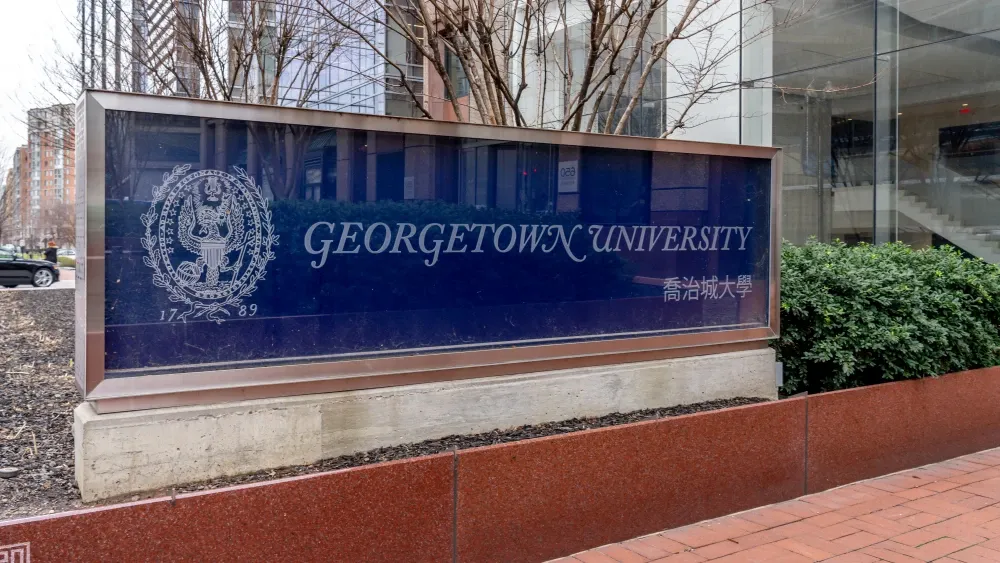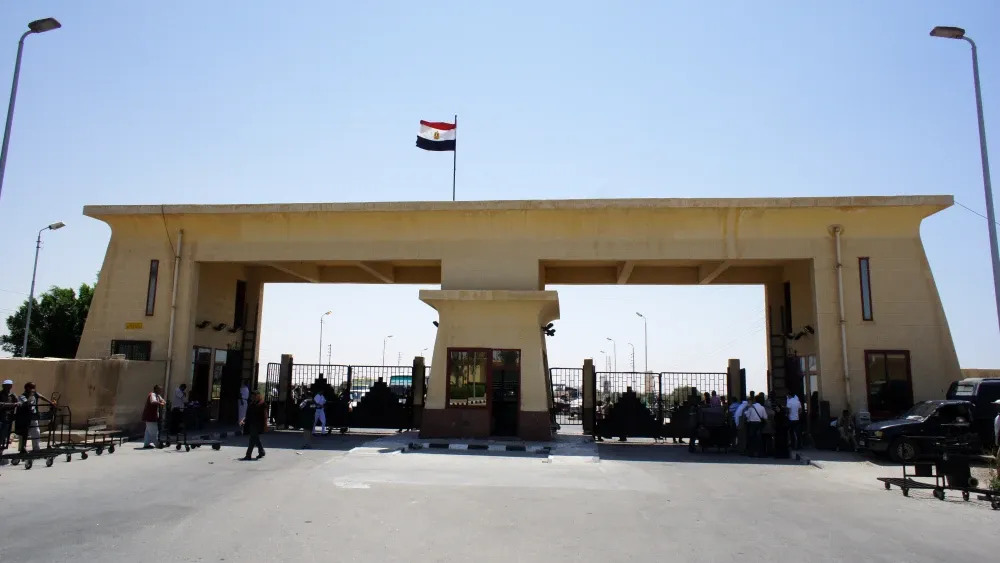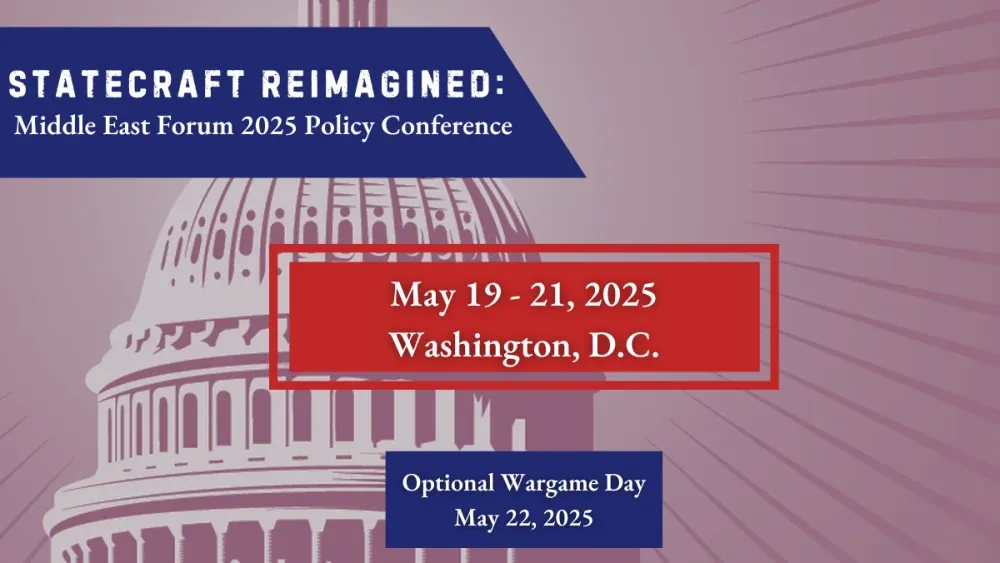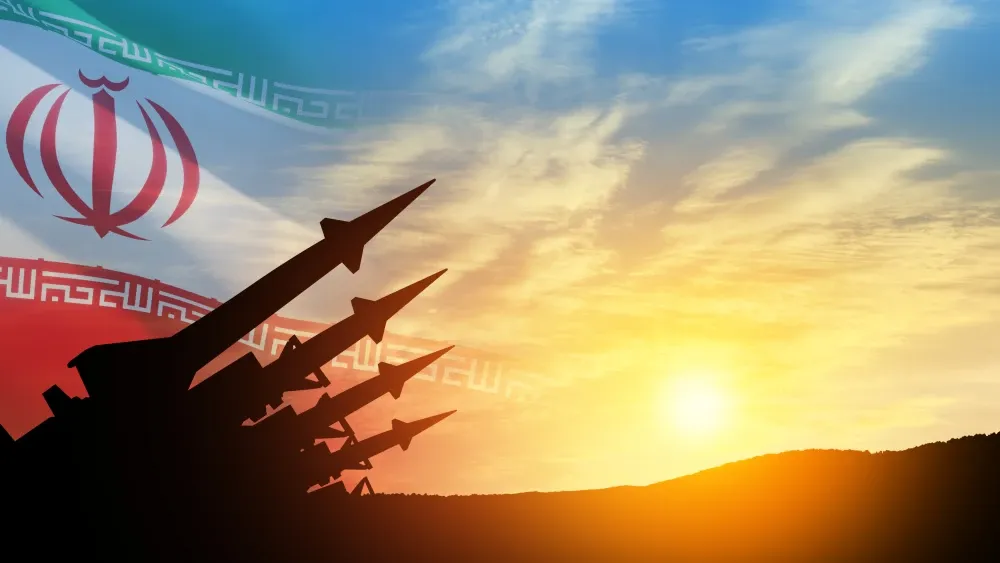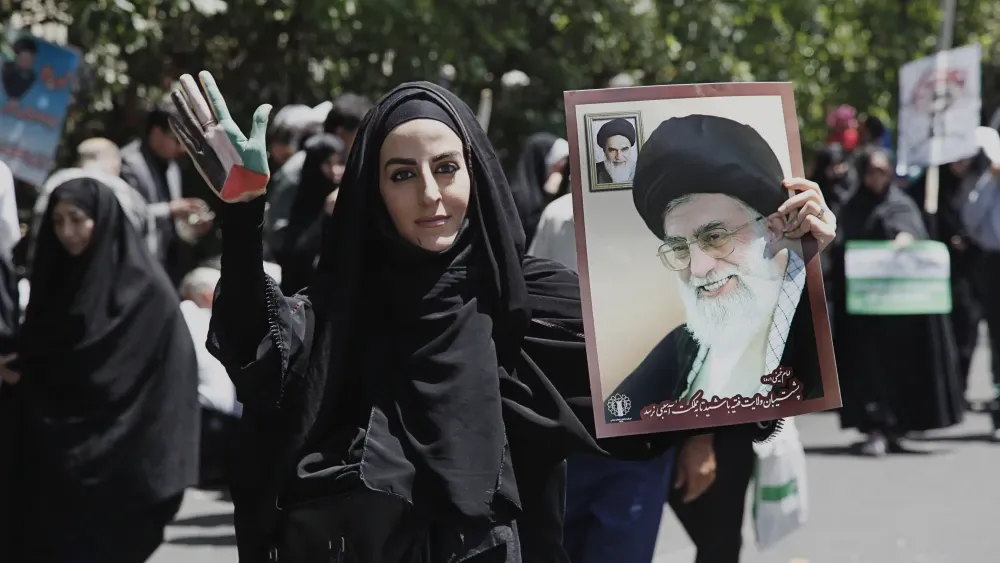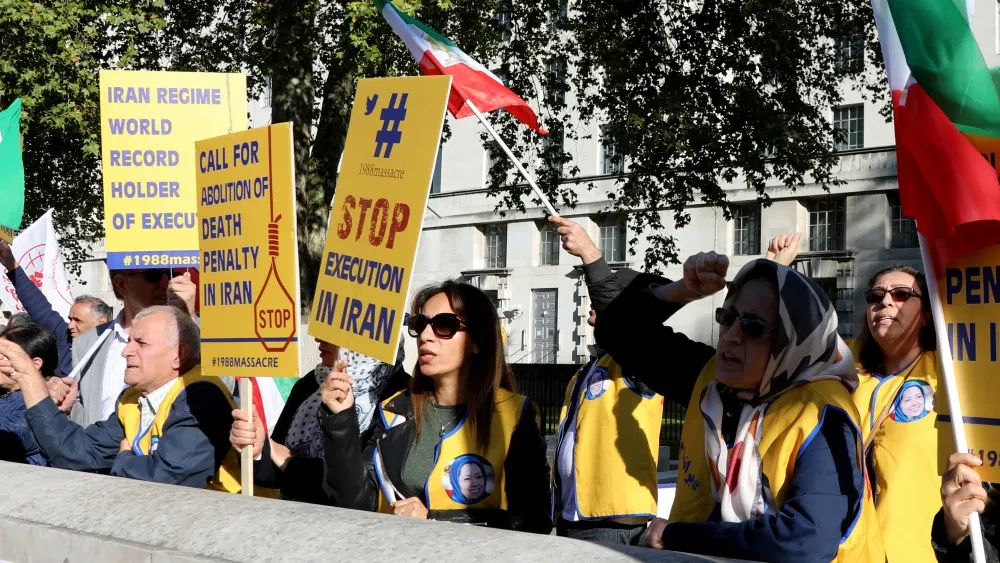| ||
 | ||
| Hamas-Linked Georgetown Univ. Academic Arrested, Faces Deportation; Egypt's Stability; & Next Steps for the Iranian Diaspora By Winfield Myers ● Mar 20, 2025 Smart Brevity® count: 6.5 mins...1773 words Badar Khan Suri, a fellow at Georgetown Univ.’s Prince Alwaleed bin Talal Center for Muslim-Christian Understanding, has been arrested and may be deported. This follows an article published by the MEF exposing Suri’s repeated praise of Hamas terror and relation by marriage to a senior figure in the designated terrorist organization. Our press release, just below, has more information and links. Egyptian elites comfort themselves by saying their country is “too big to fail”—but can it ever thrive? Our first article recommends a path forward. The rest of this issue deals with Iran. Domestically, the electrical grid is neither sufficient nor reliable as the economy crumbles, and bitcoin production adds to its woes. We argue that the supposed fatwa against nukes is a trap for Westerners intent on ignoring the regime’s pursuit of the ultimate weapon. The Iranian diaspora’s infighting can make it its own worst enemy, but that needn’t—and can’t—be the norm as the post-Khamenei era nears. Cult-like practices by one group stand out, and we warn that it should be shunned no matter the size of the honoraria it offers for praising it. Finally, the U.K. is taking stronger steps to rein in Iranian regime influencers, a welcome move that’s part of a promising trend. | ||
NEWS: Hamas-Linked Georgetown Academic Faces Deportation Following MEF ReportBadar Khan Suri, a fellow at Georgetown University’s Prince Alwaleed bin Talal Center for Muslim-Christian Understanding, has been arrested and faces deportation proceedings following a Middle East Forum (MEF) report. The report, published on February 24, 2025, exposed Suri’s praise of Hamas terror and his marriage to the daughter of a senior Hamas leader. Suri, who previously joined a 2010 activist caravan to support Gaza under Hamas control, is challenging his detention in a sealed petition filed in Virginia. The Trump administration’s action against Suri is part of a broader effort to remove foreign nationals accused of extremism. MEF research associate Anna Stanley, who authored the initial exposé, praised the move, stating it prevents the U.S. from becoming a haven for extremists in academia. An upcoming MEF and Clarity Coalition report will further detail ties between Georgetown staff and hostile foreign entities, radicals, and terror groups, signaling a crackdown on such connections in American universities. To read the full press release, click here. | ||
ICYMI: March 19, 2025 | Israel Insider with Ashley PerryHow serious are the accusations against Prime Minister Benjamin Netanyahu? What effect are they having on his ability to manage the multi-front conflict in which Israel is currently engaged? Ashley Perry is an advisor to the Middle East Forum’s Israel office. He served as adviser to Israel's minister of foreign affairs and deputy prime minister in 2009-15, and has also worked with Israel's Ministers of Intelligence, Agriculture and Rural Development, Energy, Water and Infrastructure, Defense, Tourism, Internal Security, and Immigrant Absorption and as an advisor to The Negev Forum. Originally from the U.K., he moved to Israel in 2001. He holds a B.A. from University College London and an M.A. from Reichman University (IDC Herzliya). To watch the full podcast, click here. | ||
The Gaza War and the ‘Egypt-Is-Too-Big-to-Fail’ ArgumentEgypt has long relied on its strategic importance to secure financial bailouts, yet its economy teeters on the brink. Why it matters: Egypt's "too big to fail" mindset has led to complacency, with reforms taking a back seat to short-term fixes.
Economic woes: Years of mismanagement, compounded by global events, have driven Egypt into its worst economic crisis in decades.
What's next: Egypt must pursue deep reforms to break free from dependency and achieve sustainable growth.
To read the full article, click here. | ||
Will Bitcoin Mining Bring Iran Down?Iran is facing widespread protests as its infrastructure struggles amid economic and political turmoil. Bitcoin is partly to blame. Why it matters: Iran May be on its way to falling victim to the first bitcoin revolution because of the inability of Iran’s electrical grid to keep up.
By the numbers: Iran's electricity shortage equals the output of eight Hoover Dams, with blackouts affecting major cities.
What's next: As the regime's legitimacy wanes, its ability to address infrastructure failures is in question.
To read the full article, click here. | ||
You’re invited to ‘The Strait’ – a Middle East Forum War Game SimulationWe are pleased to invite you to THE STRAIT, a one-day war game simulation hosted by the Middle East Forum on May 22, 2025. This immersive event places you in the heart of a hypothetical crisis in the Strait of Hormuz—one of the world’s most strategically vital maritime chokepoints. Why Attend?
What to Expect
To register or for more information, click here. | ||
Has Iran Cancelled Khamenei’s Supposed Fatwa Against Nuclear Weapons?A decade ago, President Obama cited a fatwa by Supreme Leader Ayatollah Khamenei as a safeguard against Iran's nuclear ambitions. Today, that assurance rings hollow. Why it matters: Western reliance on this supposed fatwa is dangerously misplaced as Iranian leaders openly flirt with nuclear development.
Fatwa fiction: Fatwas are not immutable; they can be erased or rewritten.
What's next: Iran's leaders hint at nuclear capabilities, challenging Western narratives and threatening regional stability.
To read the full article, click here. | ||
Iranian Diaspora Needs to Take the Next StepIran is on the brink of regime change, driven by internal dynamics and the impending transition from Supreme Leader Ali Khamenei. It’s time for regime opponents in the Iranian to unite over fundamentals. Why it matters: The 2022-2023 "Woman, Life, Freedom" protests exposed the regime's waning legitimacy, highlighting the urgency for a cohesive opposition.
Unity over division: Iranian political groups must debate now, or they will squander the opportunity when the Iranian regime teeters under the weight of its own incompetence, cruelty, and illegitimacy.
What's next: As Khamenei’s era closes, the key lies in diaspora groups’ shaping a transitional consensus around core principles: secular governance, religious freedom, respect for human rights, free elections, rule of law, and territorial sanctity.
To read the full article, click here. | ||
Where Are Mujahedin-e Khalq Schoolchildren?The Mujahedin-e Khalq (MKO) seeks credibility by paying for endorsements and hosting rallies, yet its controversial history and cult-like practices raise doubts. Why it matters: Despite MKO's pro-American claims, its members face skepticism, including being denied FBI security clearances.
Cult-like isolation: MKO isolates members' children, avoiding public and multicultural schools.
What's next: American officials should be very, very cautious when signing onto the MKO’s talking points or accepting their claims.
To read the full article, click here. | ||
The U.K. Launches New Strategy Against Iranian InfluenceThe U.K. has placed Iran on the highest tier of its Foreign Influence Registration Scheme (FIRS), requiring anyone acting on Iran’s behalf to register or face up to five years in prison. Why it matters: This move marks a significant step in countering covert Iranian influence in the U.K., especially amid concerns about Iranian operations targeting Jewish and Israeli communities.
Fighting foreign interference: The enhanced FIRS tier requires individuals lobbying for foreign powers like Iran to register or face penalties.
What's next: The U.K. plans to bolster security around at-risk institutions and consider expanding proscription powers against state-backed groups.
To read the full article, click here. | ||
| We will soon send a special issue of the Dispatch with updated information on the arrest of Georgetown academic Badar Khan Suri, so please stay tuned. As always, we invite you to forward this issue to a friend and to use the comments feature to let us know your thoughts on the Dispatch and the issues we cover. Sincerely, Winfield Myers | ||
| Was this edition useful? Your email will be recorded and shared with the sender | ||
| Powered by | ||
| ||

